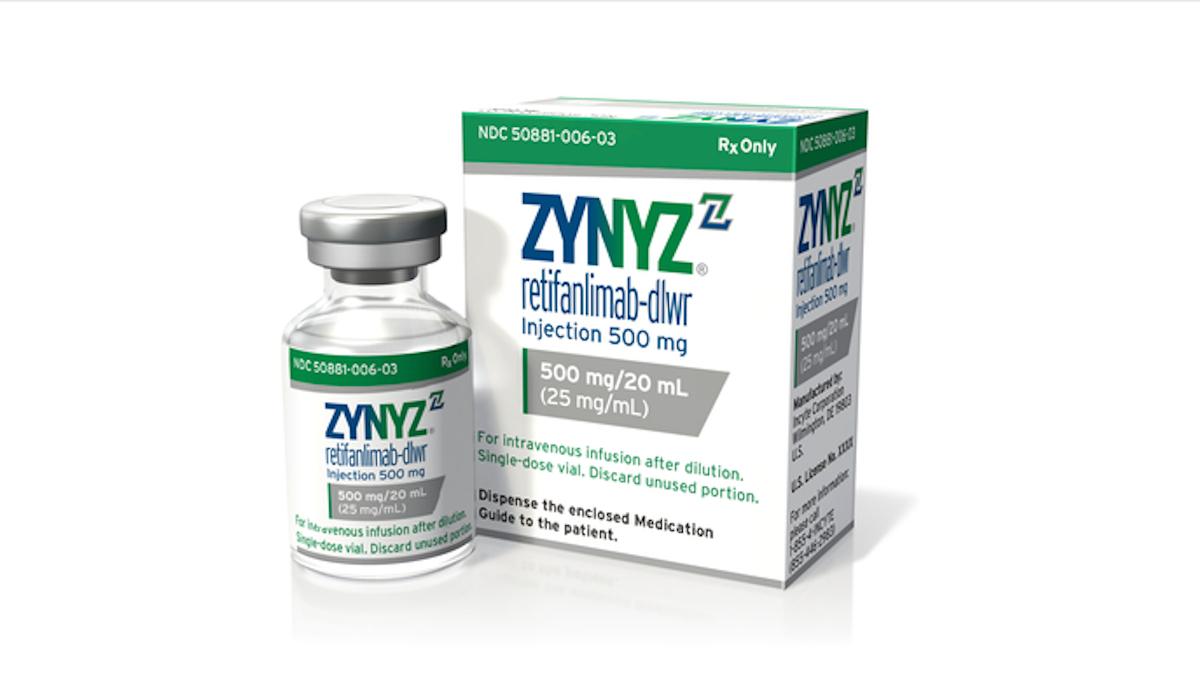Incyte's PD-1 drug brings immunotherapy to anal cancer

Incyte has broken new ground in immuno-oncology, getting FDA approval for its Zynyz drug as a treatment for anal cancer.
The latecomer PD-1 inhibitor – already approved for Merkel cell carcinoma – has become the first cancer immunotherapy for advanced squamous cell carcinoma of the anal canal (SCAC), although other drugs in the class including MSD's top-selling Keytruda (pembrolizumab) have been used off-label to treat the disease.
It has the go-ahead from the US regulator as a first-line, combination regimen with platinum-based chemotherapy, and also as a monotherapy for patients intolerant of chemo and as a second-line option for patients whose disease has progressed on chemo alone.
Incyte had previously tried to get a green light for Zynyz (retifanlimab) as a second-line, post-chemotherapy treatment for SCAC, but that application was rejected in 2021.
The new approval stems in part from the results of the POD1UM-303 study – reported at last year's ESMO congress – which were billed as having the potential to change medical practice. Zynyz plus chemo reduced the risk of disease progression or death by 37% compared to chemo alone, and extended median progression-free survival (PFS) to 9.3 months from 7.4 months.
There was also a trend towards improved overall survival (OS), 30% higher at 29.2 months with the PD-1 inhibitor and 23 months in the control group, although that data is not yet mature. Tellingly, the improvement in OS came even though patients in the control arm were able to cross over to monotherapy with Zynyz on disease progression.
SCAC is generally linked to human papillomavirus (HPV) infection and is fairly rare, with around 10,000 cases a year diagnosed in Europe and the US, although its incidence has been rising in some countries by around 2% to 3% a year.
The hope is that Zynyz could also have a role to play in other HPV-related malignancies, which include some forms of head and neck, cervical, and penile cancers, while Incyte is also testing it in combination with chemo in non-small cell lung cancer (NSCLC). However, the NSCLC trial is comparing the combination to chemo alone, rather than the standard of Keytruda plus chemo, so its prospects in that indication are uncertain.
The SCAC approval is likely to spark an uptick in Zynyz sales, which were pretty modest at just over $3 million last year, and Zynyz is also under regulatory review in Europe and Japan with decisions expected in the coming months.
There are already signs of acceleration, with Incyte reporting $3 million in sales in the first three months of 2025 alone and, while the company doesn't anticipate that Zynyz will be a major revenue driver in itself, it is viewed as a key combination partner for other drugs in the company's oncology pipeline.











